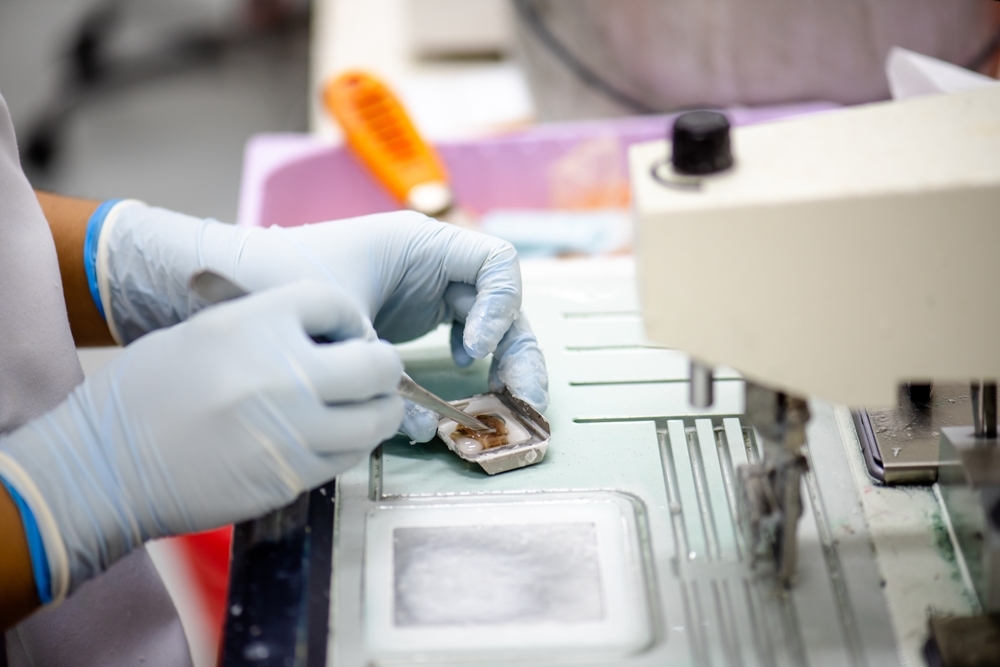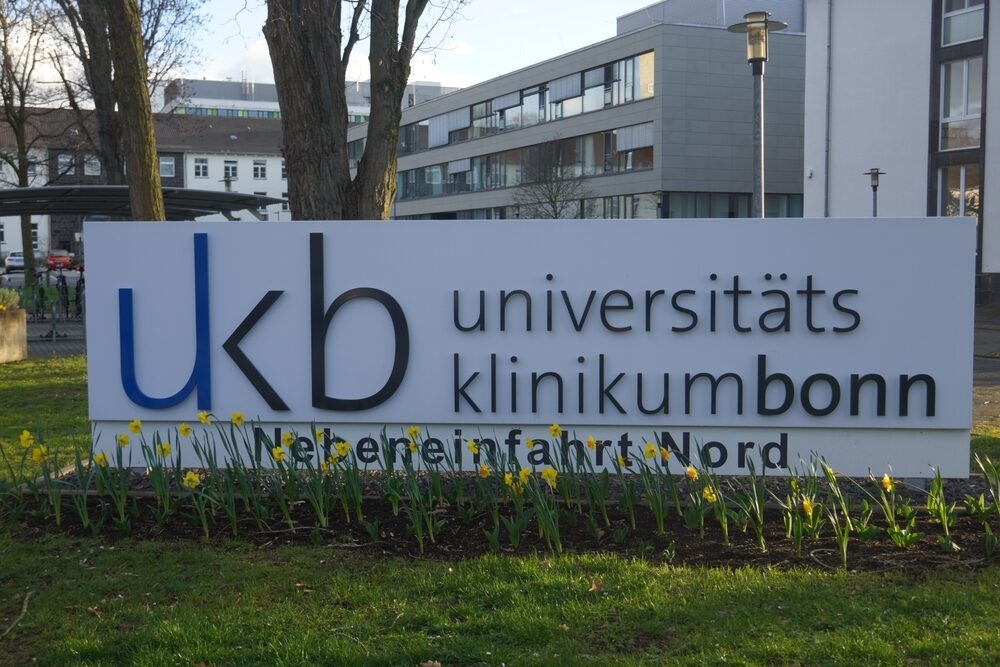
☝️ The most important facts in brief
- Specialists in pathology earn an average of 77,000 euros, experienced pathologists up to 98,000 euros per year
- Senior physicians earn up to 112,000 euros or approx. 9,333 euros per month, senior physicians at university hospitals up to 130,000 euros per year
- Collective agreements regulate salaries in municipal and university hospitals, similar ranges in private and denominational hospitals
- As self-employed pathologists in private practice, they have additional earning opportunities, but also costs to consider
📖 Table of contents
The income of pathologists varies depending on professional experience, position and place of work. As an assistant doctor in pathology, you start with a gross annual salary of around 58,000 to 59,000 euros. Once you have completed your specialist training, you can expect an average pathologist salary of around 77,000 euros gross per year. Experienced pathology specialists earn an average of 98,000 euros per year, while senior physicians can earn up to 112,000 euros per year. At university hospitals, top salaries of up to 130,000 euros are possible as a senior consultant.
As a pathologist, you have a crucial role in medical diagnostics. You analyse samples of tissue and body fluids to identify pathological changes and determine the causes of diseases. Your expertise is particularly in demand in cancer diagnostics to determine the type and stage of tumours. Would you like to find out more about the work of a pathologist? Then take a look at our article on the topic "What does a pathologist do" to
Are you interested in studying medicine?
We will be happy to advise you free of charge about your options for studying medicine, including advice on studying medicine in another EU country, which is fully recognised in Germany.
Factors influencing the salary of pathologists
As a pathologist, you can expect an attractive salary. However, your earnings are influenced by various factors. Here you can find out which aspects are decisive for your annual salary and how you can optimise your earning potential in this profession.
Collective agreements and remuneration structures
Collective agreements play an important role in your salary as a pathologist. In many clinics and hospitals, salaries are paid according to fixed collective agreements. These regulate pay according to your professional experience and position. Non-collective agreements are also possible and often offer higher earning opportunities, but also require good negotiating skills.
Professional experience and position
Your salary as a pathologist will also rise with increasing professional experience. As a career starter, you usually begin as an assistant doctor and can then work your way up to specialist, senior doctor and finally chief physician. Each of these positions brings with it a higher salary. Even within the individual levels, there are usually salary increases based on years in the profession.
Position | Average salary (gross/year) |
Assistant doctor | 58.000 € |
Medical specialist | 76.000 € |
Senior physician | 98.000 € |
Chief physician | 130.000 € |
Place of work and federal state
Your place of work also has an influence on your salary as a pathologist. In some federal states, such as Baden-Württemberg, Hesse, Hamburg and Bavaria, you can expect to earn more than in Mecklenburg-Western Pomerania, for example. The regional differences in salary are often due to the cost of living and the general salary level locally.
Federal state | Average salary pathologist (gross/month) |
Baden-Württemberg | 8.500 € |
Bavaria | 8.400 € |
Hamburg | 8.300 € |
Hesse | 8.300 € |
Mecklenburg-Western Pomerania | 6.985 € |
Your salary as a pathologist therefore depends on various factors. However, with the right qualifications, professional experience and skilful salary negotiations, you can earn an attractive income at any stage of your career and make the most of your earning potential in the exciting field of pathology.
Salary of pathologists in clinics and hospitals
The salary of pathologists in clinics and hospitals depends on various factors, such as the collective labour agreement, professional experience and position. In Germany, doctors in this field earn on average between 2,900 and 7,800 euros gross per month for a 40-hour week.
Remuneration according to collective agreement TV Ärzte TdL
In many university hospitals, remuneration is based on the TV-TdL collective agreement for the public sector. As a junior doctor, the starting salary is 5,100 euros gross per month. After six years of professional experience, the salary rises to around 6,500 euros. After completing specialist training, you start with a gross salary of 6,737 euros. Senior physicians can earn around 8,400 to 9,600 euros, while senior consultants earn a gross salary of 9,900 to 11,200 euros.
Remuneration according to collective agreement TV Ärzte VKA
In public hospitals, remuneration is based on the TV-Ärzte VKA. Assistant doctors receive between 5,288 and 6,798 euros gross per month, depending on the year of employment. Specialists earn around 6,980 to 8,964 euros from the first to the 13th year. Senior consultants start with a starting salary of 8,742 euros, while senior consultants start with a gross salary of 10,284 euros.
Position | TV Doctors TdL | TV Doctors VKA |
Assistant doctor (entry level) | 5.100 € | 5.288 € |
Assistant doctor (after 6 years) | 6.500 € | 6.798 € |
Medical specialist (entry level) | 6.737 € | 6.980 € |
Specialist doctor (after 13 years) | - | 8.964 € |
Senior physician (entry level) | 8.400 - 9.600 € | 8.742 € |
Senior consultant (entry level) | 9.900 - 11.200 € | 10.284 € |
Pathologist salary: what you earn in private clinics
Private clinics often have their own collective agreements, but generally pay similar salaries to university hospitals. At the Helios Clinic, assistant doctors earn 5,295 to 6,517 euros, at the Asklepios Clinic 5,430 to 6,960 euros and at the KMG Clinic Group 5,259 to 6,527 euros gross per month. As a specialist, the starting salary is around 6,700 to 6,800 euros, as a senior consultant 8,400 to just under 8,700 euros and as a senior consultant at least 9,100 euros gross.

Earning opportunities for pathologists in denominational institutions
As a pathologist in a denominational hospital, you have the opportunity to earn an attractive salary. Remuneration here is based on the employment contract guidelines (AVR) of the respective sponsoring organisation, such as Diakonie or Caritas. Once you have completed your specialist training, you can expect a gross salary of around 7,000 to 9,200 euros per month in these organisations.
Compared to municipal or university hospitals, the salary level in denominational facilities is often somewhat lower. Nevertheless, they often offer other benefits, such as family-friendly working time models or a better work-life balance. For many doctors, these aspects are just as important as the salary alone.
Additional earnings through bonuses and special benefits
As a pathologist in hospitals and clinics, you can increase your gross salary with various bonuses and special benefits. These additional benefits supplement your regular income and offer you the opportunity to earn more depending on your commitment and qualifications.
Night, weekend and public holiday bonuses
Supplements for night shifts, weekends and public holidays are an essential part of the additional remuneration for pathologists. The amount of these bonuses depends on the respective collective agreements, such as the TV Ärzte TdL. By taking on shifts at unfavourable times, you can significantly increase your gross salary and thus benefit from your additional commitment.
Type of surcharge | Surcharge amount |
Night surcharge | 15-25% of the hourly wage |
Weekend surcharge | 10-20% of the hourly wage |
Public holiday surcharge | 25-50% of the hourly wage |
Additional services and benefits
In addition to monetary bonuses, many hospitals and clinics offer their pathologists attractive additional services and benefits. These serve to position themselves in the competition for qualified specialists and strengthen employee loyalty. Common additional benefits include
- Company pension scheme
- Job ticket for local public transport
- Company health management
- Free or discounted parking spaces
- Childcare subsidies
- Further education and training opportunities
These benefits can vary depending on the employer and job and offer you an additional incentive to choose a particular clinic or hospital over your regular salary. When looking for a job, find out specifically about the additional benefits offered by the hospital in order to find the best overall package for you.
Salary of practising pathologists with their own practice
As a pathology specialist, you have the opportunity to set up your own practice. The easiest way to do this is to take over an existing practice. However, even if the work in pathology does not correspond to that of a "traditional" practice, it can be difficult for you as a pathologist to find a seat, as you are also subject to demand planning.
Income and costs of a pathology practice
According to the Federal Statistical Office, self-employed pathologists with their own practice generated an average annual income of around 709,000 euros in 2018. However, costs for staff, work materials, insurance and other business-related expenses must be deducted from this, resulting in a calculated net income of around 293,000 euros. Smaller individual and group practices in particular often find it difficult to cover the costs of expensive equipment, for example for molecular biology tests.
For this reason, pathologists in private practice are increasingly joining forces with universities, such as in the "Molecular Pathology South Bavaria" network with the Technical University of Munich. In pathology, the shared practice model is becoming increasingly popular, which reduces organisational effort and enables cost savings. Thanks to the connection to the university landscape, as a pathologist you can also make valuable contacts in order to pursue a sideline as an external lecturer at the university.
Free information material
Studying medicine abroad 🎉
Order your info pack now, find out more about the Studying medicine abroad and get started as a medical student!





